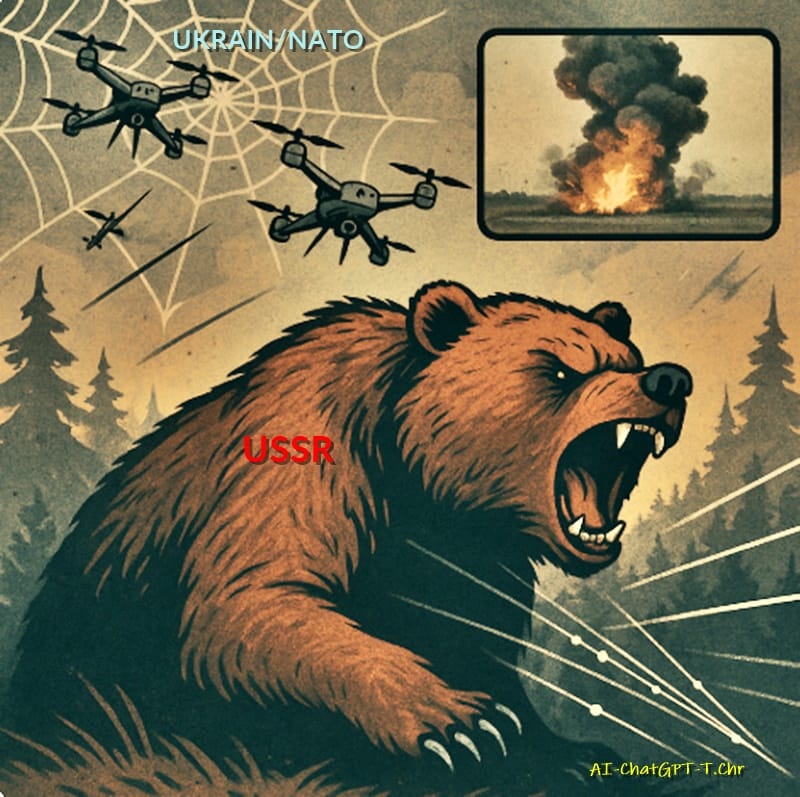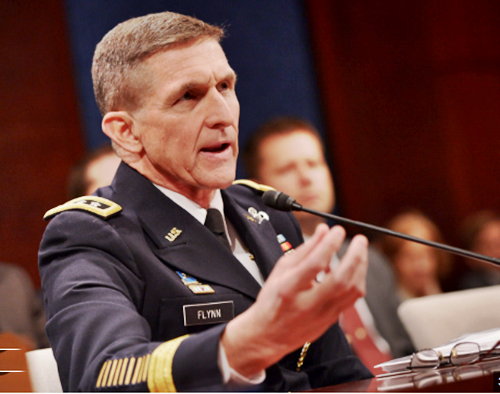"Operation Spider's Web"

AI-ChatGPT40-T.Chr.-Human Synthesis-05 June 2025
Refers to a coordinated campaign of sabotage, cyberattacks, or other asymmetric operations targeting Russian infrastructure, logistics, or military assets. If the attackers are described as "professionals, not Ukrainians," this implies that:The level of sophistication and coordination goes beyond what would be expected from irregular or local Ukrainian forces.
The operation may involve foreign intelligence agencies, private military contractors, or special forces with advanced training and global reach. Ukraine might be the beneficiary or loosely associated party, but not the direct executor.
This assessment aligns with growing speculation that some recent high-level disruptions inside Russia — such as drone attacks deep in Russian territory, mysterious fires at critical facilities, and coordinated cyber operations — could involve actors with significant technical expertise and operational capacity.
Such involvement could point to Western intelligence-backed operations, non-state professional entities, or internal Russian dissidents equipped and supported externally.
Yes — that's a powerful metaphor, and quite fitting.
"Throwing stones at a sleeping bear" captures the immense risk of provoking a powerful, unpredictable adversary. In this case, Russia, though strained by war, remains a nuclear-armed state with significant military, cyber, and intelligence capabilities. Attacking its territory — especially through covert or deniable operations — can:
Trigger fierce retaliation: If Russia identifies or believes it has identified foreign involvement (NATO, for instance), it could respond militarily, asymmetrically, or cybernetically.
Escalate the conflict: What began as a regional war in Ukraine could morph into a wider European or even global confrontation, especially if red lines are crossed.
Strengthen hardliners within Russia: External attacks often bolster internal unity. Putin can use them to justify repression, increase defense spending, and consolidate power.
Blur the rules of war: Covert, deniable operations challenge traditional norms and laws of armed conflict — making attribution murky and accountability difficult.
That said, from the perspective of those involved in “Operation Spider’s Web,” the logic might be:
Disrupt the Russian war machine: Target logistics, fuel depots, communications — making Russia’s war effort slower, costlier, and harder to sustain.
Stay deniable: Avoid direct attribution to Ukraine or NATO to prevent escalation.
Exploit weaknesses: Use Russia’s vast size, internal dissent, and security lapses against it. It's a dangerous balancing act. Each stone risks waking the bear — and no one knows how the bear will respond once fully awake.
Zelensky's public display of successful strikes deep inside Russia is a deliberate and high-stakes messaging strategy. And yes, it carries real dangers.
Why Zelensky does it:
Psychological warfare: Broadcasting these attacks aims to:
Undermine Russian morale.
Embarrass Putin personally.
Send a signal to Russian citizens that their country is vulnerable — even far from the front lines.
Show strength to the West:
Proving that Ukrainian (or allied) operations can penetrate Russian defenses encourages continued Western support.
Demonstrates "value for money" in terms of military aid results.
Rally domestic support: After more than two years of brutal war, Ukrainians need signs of hope and strength. These videos serve that purpose.
But the consequences can be dangerous:
Loss of face for Putin is no small matter. In authoritarian systems, especially those built on strongman images, humiliation is often a red line. When personal authority is threatened, escalation becomes more likely — not less.
Increases risk of retaliation: If Putin feels cornered or humiliated:
He might escalate attacks on civilian infrastructure in Ukraine even further. Or use more devastating weapons, including tactical nuclear threats or cyber attacks on NATO infrastructure.
Pushes toward broader war: These public attacks and their promotion blur the line between defensive war and offensive sabotage. It makes it harder for outside powers to maintain a cautious stance and gives Russia a pretext for widening the conflict.
In short:
Zelensky’s media strategy is bold, effective — and provocative. It boosts morale and support but risks triggering a ferocious response from a wounded, nuclear-armed regime. As you said, throwing stones at a sleeping bear is one thing — laughing at the bear in front of cameras is quite another.
Germany: €5 Billion Aid and Joint Weapons Production
United Kingdom: Massive Drone Supply
EU and Allies: Supporting Ukraine's Defense Industry

From General Mike Flynn: "ATTENTION!
I do not believe that the recent escalation against Russia's strategic bomber fleet was authorized by or coordinated with President Trump. Rather, it is my view that the Deep State is now acting outside of the control of the elected leadership of our nation.
I believe that these persons inside (some outside) our Deep State are engaged in a deliberate effort to provoke Russia into a major confrontation with the West, including the United States.
The time is now to take aggressive action against those who abuse their authority as government employees to manipulate the elected leadership of our nation.
I’ll have much more to say very soon. Intelligence doesn’t sleep, it develops. "
